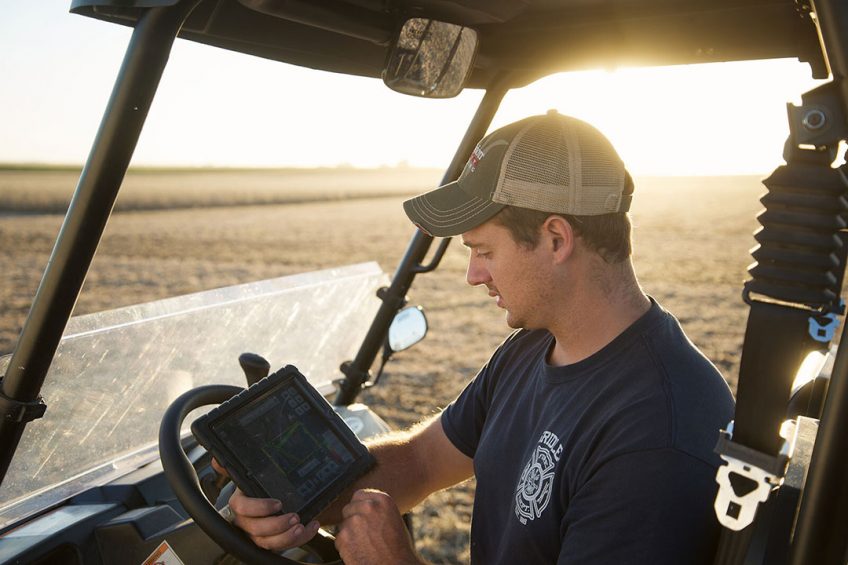Bayer: Promising future for digital agricultural data

Processing crop data digitally in advice on fertilisation, crop protection and irrigation has a bright future, according to Mike Stern, CEO of Climate Corporation.
Digitisation of agriculture is crucial to meet the growing demand for food worldwide. Bayer is keen to play a role in this, said Mike Stern, CEO of The Climate Corporation and head of Bayer Crop Science’s Digital Farming division, in a recent webinar. The webinar is part of a series: Future of Farming Dialogue.
Irrigation
Digital agriculture is not just about improvements in fertilisation and crop protection. Irrigation is also becoming increasingly important in crop recommendations in areas where water is scarce. At the same time, it is possible to respond better to extreme weather based on past experience.
Stern cited the extreme rainfall in North America in 2019 as an example. The data collected during the planting and sowing season are now used again to respond to new situations.
In the webinar, Stern talked to Arianna Giulodori, Secretary General of the World Farmers Organization WFO, and the Indian farmer Ravichandran, who talked about his experience in digitising cultivation advice and knowledge. Special attention is paid to the problems huge number of small farmers are facing when using the digitisation of cultivation techniques.
Ravi illustrated the progress of his business. In the 1980s, decisions were too often made randomly, which sometimes resulted in crop loss. “Now it is just a matter of uploading a photo of the crop and then an advice is issued, for example about fertilising.”
Acsess to digital infrastructure
An important challenge is access to the digital infrastructure. That is one of the obstacles on the way to digitisation for millions of small farmers in developing countries. The next step is that farmers must also have the means to use new techniques, which simply starts with a mobile phone or laptop.
Also in developed countries there are still large areas where the digital infrastructure is not yet capable of processing the large amount of data that digital agriculture produces and needs.
Arianna Giulodori mentioned three important elements in the future vision for digital farming:
- Farmers are economically minded actors in the chain.
- Farmers are embedded in a sustainable food system.
- Farmers must receive a fair share of the production value, including the value from all data generated by agriculture itself.
FieldView: 56 million hectares
Climate Corporation is already active with Fieldview in countries such as the US, Brazil, Argentina and various EU countries. It now includes data from approximately 56 million hectares worldwide. In the Benelux, Climate Corporation mainly focuses on grains. According to a spokesman for Bayer, the big next step will be taken within the Benelux when Climate Corporation starts focusing on crops such as potatoes.
FieldView is a digital farming platform that captures machine (tractors, combines, liquid applicators, planters) and field data. It provides farmers with field health imagery, variable rate prescriptions and fertility and crop protection recommendations.



